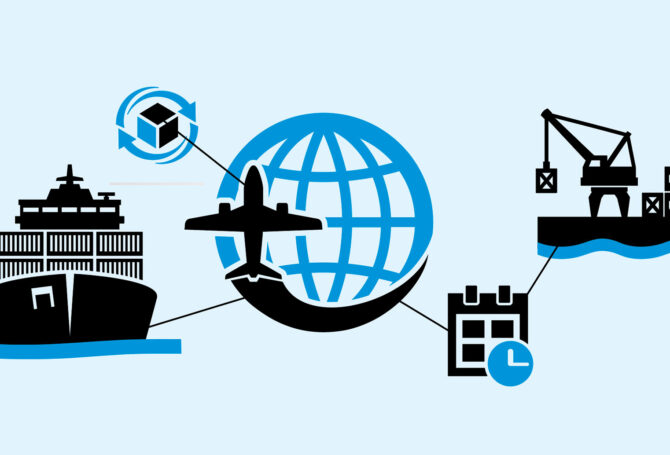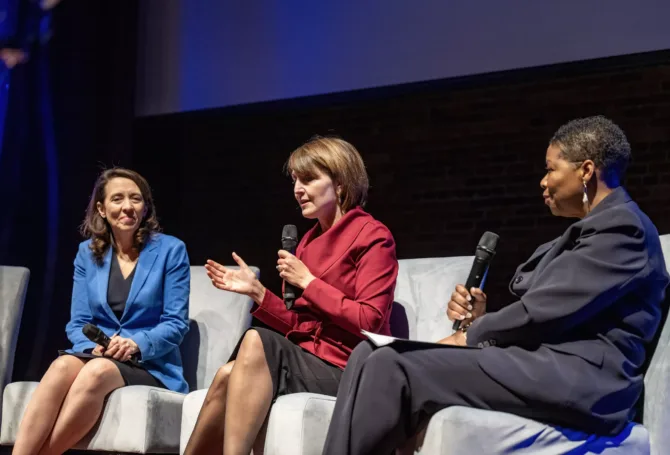
Retiring Congressman Played Outsized Role in Infrastructure Investment
Former Oregon Fourth District Congressman Peter DeFazio admits he is an infrastructure junkie.
DeFazio spent his entire 36-year tenure in Congress on the House Transportation and Infrastructure Committee. He developed a well-informed perspective on infrastructure by serving as chair or ranking Democrat on four of the committee’s six subcommittees – Aviation, Coast Guard and Maritime Transportation, Highways and Transit, and Water Resources and Environment.
As chairman of the House Transportation and Infrastructure Committee, one of DeFazio’s proudest achievements was passage in 2021 of the $1.2 trillion Infrastructure Investment and Jobs Act. He had many more.
“This is the largest single investment in transportation infrastructure since the construction of the national highway system,” DeFazio said when the bill cleared Congress. The measure provides the largest federal investment in history for public transit, passenger rail and clean drinking water. It also invests in bridge repairs, internet expansion, port dredging and EV infrastructure.
One of his earliest infrastructure successes was securing funding for a Eugene bridge, which was christened the Peter DeFazio Bridge. In an interview with Roll Call, DeFazio recalled corralling federal, state and local officials in his district office and not letting them leave without an agreement on the design of the bridge. DeFazio says the bridge was “absolutely fabulous”.
Other achievements included the largest expansion of Wild and Scenic Rivers and funding for the Harbor Maintenance Trust Fund, which he accomplished by prying loose $10 billion accumulating unspent from a cargo tax that ballooned from rising Chinese imports.
DeFazio said it took four years to secure funding to maintain harbors and jetties after the provision was dropped by Republican lawmakers in 2016 from his own water resources reauthorization bill, causing him to vote against his own bill in protest. The provision eventually passed in 2020 after a lot of legwork by DeFazio in the House and Senate,
The Infrastructure Investment and Jobs Act
DeFazio pushed the Moving Forward Act (H.R. 2) through the House in 2020, which would have invested $1.5 trillion in new expenditures in highways, rail, transit, airports, ports and harbors, wastewater and drinking water infrastructure, brownfield clean-ups and broadband expansion.
His legislation was tossed aside in the Senate in the face of Republican opposition in the Senate. That started a protracted negotiation ending with a bipartisan group of 10 senators forging a compromise package of $1.2 billion over eight years. It included $500 billion of already approved projects. DeFazio fumed privately and often but eventually became a vocal supporter of the package.
The human infrastructure provisions President Biden originally included in his Build Back Better proposal didn’t survive the legislative process.
Other DeFazio Achievements
DeFazio led the 2018 congressional investigation into Boeing 737 MAX failures that led to two deadly plane crashes. The 18-month investigation produced a report detailing lapses by Boeing and the Federal Aviation Administration. The report became the basis for comprehensive aircraft certification an safety reform that DeFazio steered through in 2021. A 2022 Netflix documentary centered on DeFazio’s investigation and findings.
DeFazio played a key role in postal reform, starting in 2013 when he introduced a bipartisan bill to eliminate the U.S. Postal Service requirement to pre-fund retiree health benefits, which tied up billions of dollars. He tried again in 2019 to remove the pre-funding mandate, which ultimately became a provision in the Postal Service Reform Act signed into law in 2022.
DeFazio had a long-running battle with the oil industry. He opposed the Lowering Gasoline Prices to Fuel an America That Works Act in 2014 as a thinly veiled attempt to drill for oil and gas on the Outer Continental Shelf in the name of lower gas prices. In response to a report that large oil companies earned record profits during the pandemic, DeFazio introduced the Stop Gas Price Gouging Tax and Rebate Act.
In 2020, DeFazio introduced legislation to repeal the exemption for health insurance companies from antitrust provisions. President Trump signed the legislation that gives the Department of Justice and the Federal Trade Commission authority to pursue potential anti-competitive actions by health insurers.
Instead of spending time on airplanes flying across the country, DeFazio plans on spending time in the infrastructure of wilderness areas and fly-fishing streams.
Not a Fan of Transcontinental Flights
Even infrastructure addicts despair at perpetual transcontinental travel. DeFazio expressed relief that in retirement he won’t have to toggle between Washington, D.C. and his Oregon congressional district.
“Well, I didn’t want to add it up, but after retiring I added it up,” DeFazio lamented to Roll Call. “I found out I spent at least 435 40-hour work weeks commuting to D.C. during my 36 years in Congress.” He said he plans to spend time in a different kind of infrastructure – the 390,000 acres of wilderness that he helped to protect, as well as fly-fishing streams.




